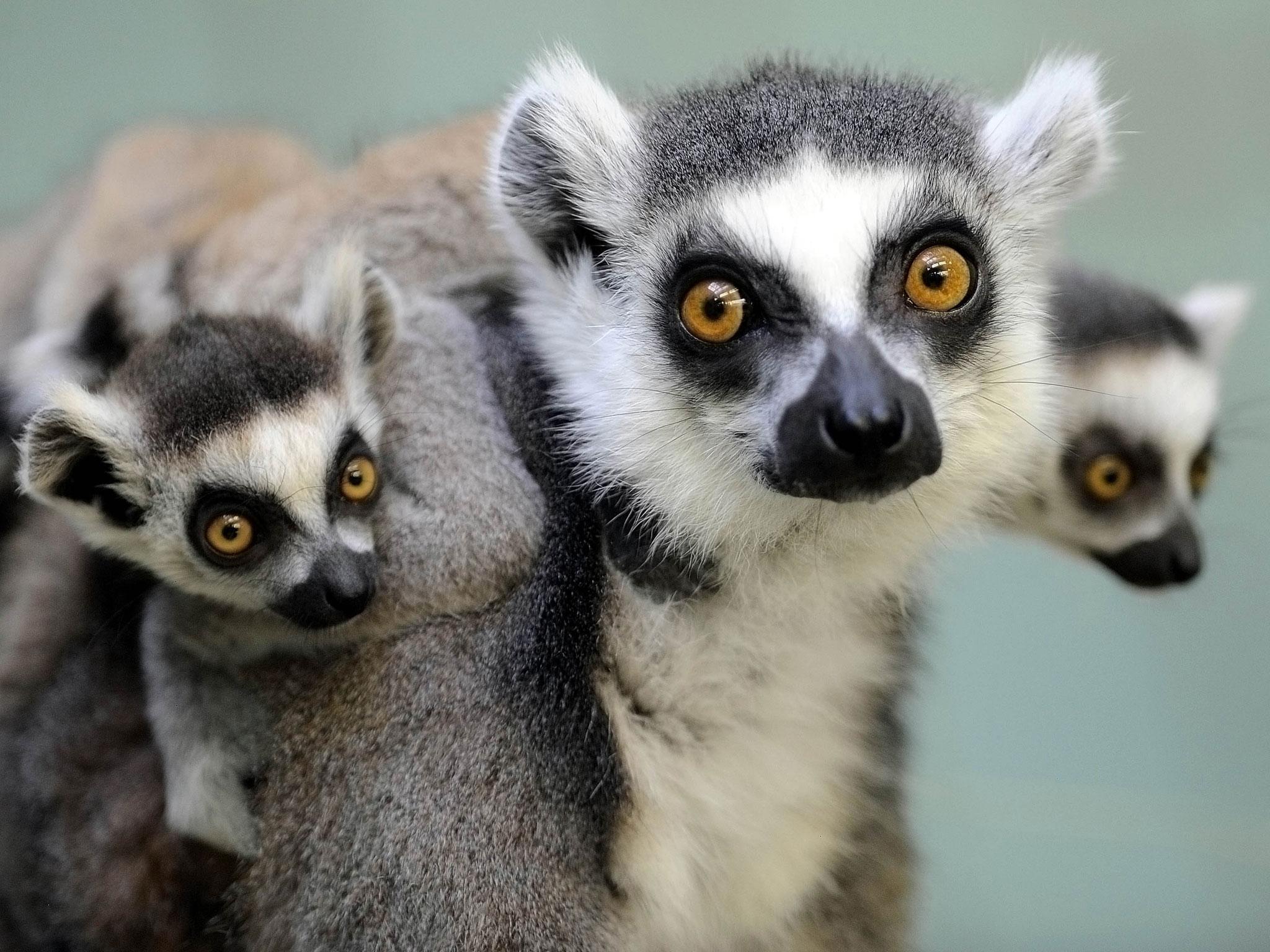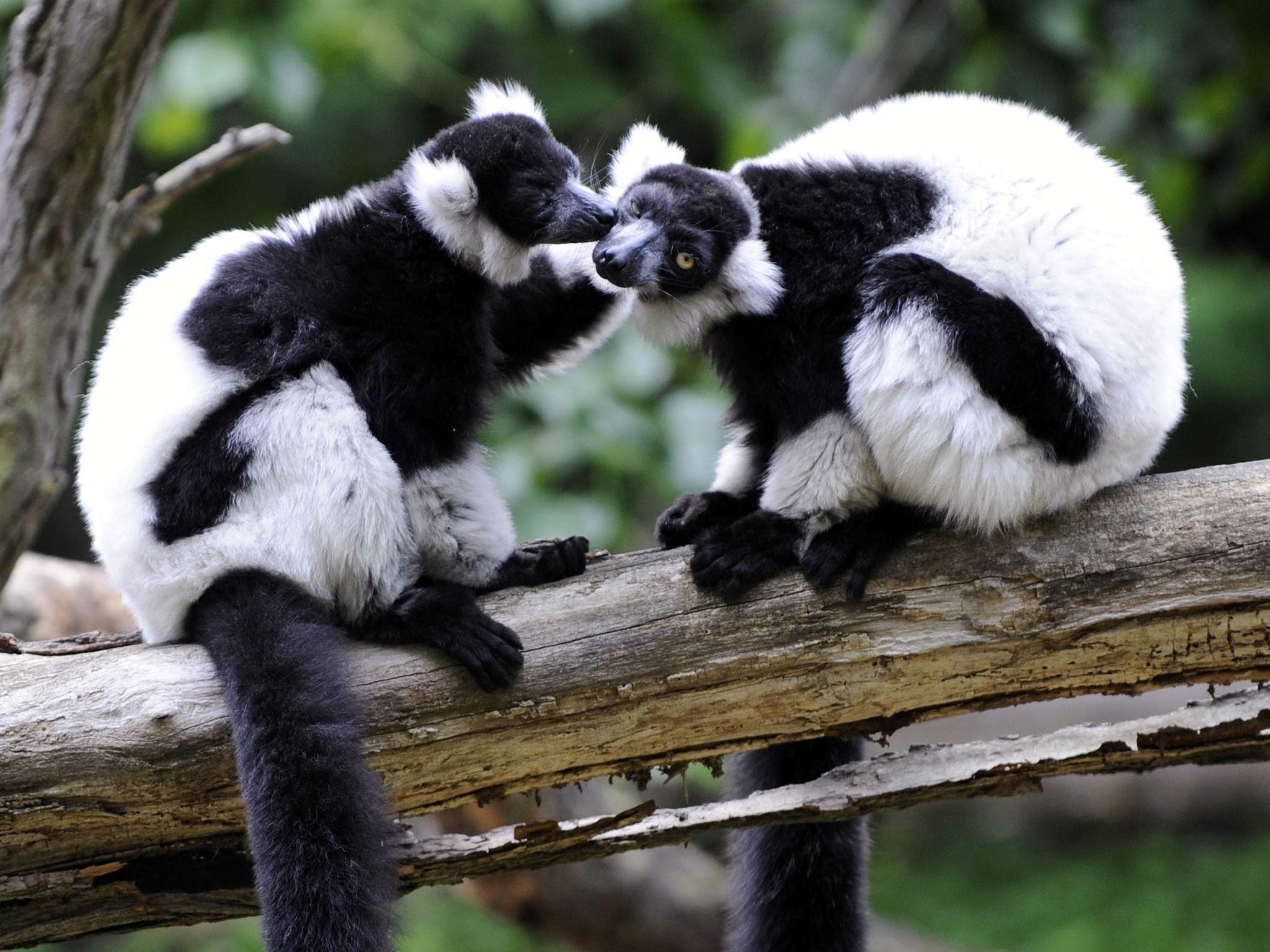Lemurs could be extinct 'very soon' experts warn
The primates are the most endangered mammals in the world, say scientists

Your support helps us to tell the story
From reproductive rights to climate change to Big Tech, The Independent is on the ground when the story is developing. Whether it's investigating the financials of Elon Musk's pro-Trump PAC or producing our latest documentary, 'The A Word', which shines a light on the American women fighting for reproductive rights, we know how important it is to parse out the facts from the messaging.
At such a critical moment in US history, we need reporters on the ground. Your donation allows us to keep sending journalists to speak to both sides of the story.
The Independent is trusted by Americans across the entire political spectrum. And unlike many other quality news outlets, we choose not to lock Americans out of our reporting and analysis with paywalls. We believe quality journalism should be available to everyone, paid for by those who can afford it.
Your support makes all the difference.Lemurs could “very soon” be extinct, some of the world’s leading experts on the primates warned as they unveiled a three-year plan to save them, on Thursday.
A combination of the destruction of their habitat and bush meat hunting by impoverished local people, means that Lemurs are now the world’s most threatened mammal group.
A five-year political crisis in the Indian Ocean island Madagascar, the only place where lemurs live, and a subsequent breakdown of environmental law enforcement have worsened the situation for the roughly 100 species of lemurs, experts said.
“Extinctions could begin very soon if nothing is done,” said Christoph Schwitzer, head of research at the Bristol Zoological Society in Britain who led a team of 19 scientists that drafted the emergency lemur preservation plan published in the journal ‘Science’.
Only fifty of the rarest northern sportive lemurs remain, he added.
“One cyclone or other natural event could wipe out the entire population. In fact, anybody who decides to go out lemur hunting could tip the species over the edge,” Schwitzer stressed.
To stop lemur extinction, the team has identified 30 priority sites for lemur conservation, which will be managed at a local level.

A long-term research presence will also be put in place in key areas, while an expansion of ecotourism will help fund the projects, experts hope.
The scientists plan to tell world leaders that for the relatively small sum of $7.6 million in international aid, a significant portion of the lemurs’ habitat could be preserved.
Lemurs are one of the most primitive types of primate, less advanced than monkeys, apes and humans.
Arboreal creatures, they eat leaves, fruits and insects.
They appeared early in primate evolution, about 62 million years ago, not long after the dinosaurs went extinct. More advanced primates never made it to Madagascar, allowing lemurs to thrive and evolve into many different species.
But most of Madagascar's forest land has been eliminated and 94 percent of lemur species are now considered vulnerable, endangered or critically endangered.
“I would certainly not want to tell my children in 10 or 20 years time, when they are old enough to travel to Madagascar, 'Look, this island was once inhabited by creatures called lemurs, but they have gone extinct because your dad, along with many others, was unable to avert their extinction at the time,” Schwitzer said.
Additional reporting by AP
Join our commenting forum
Join thought-provoking conversations, follow other Independent readers and see their replies
Comments